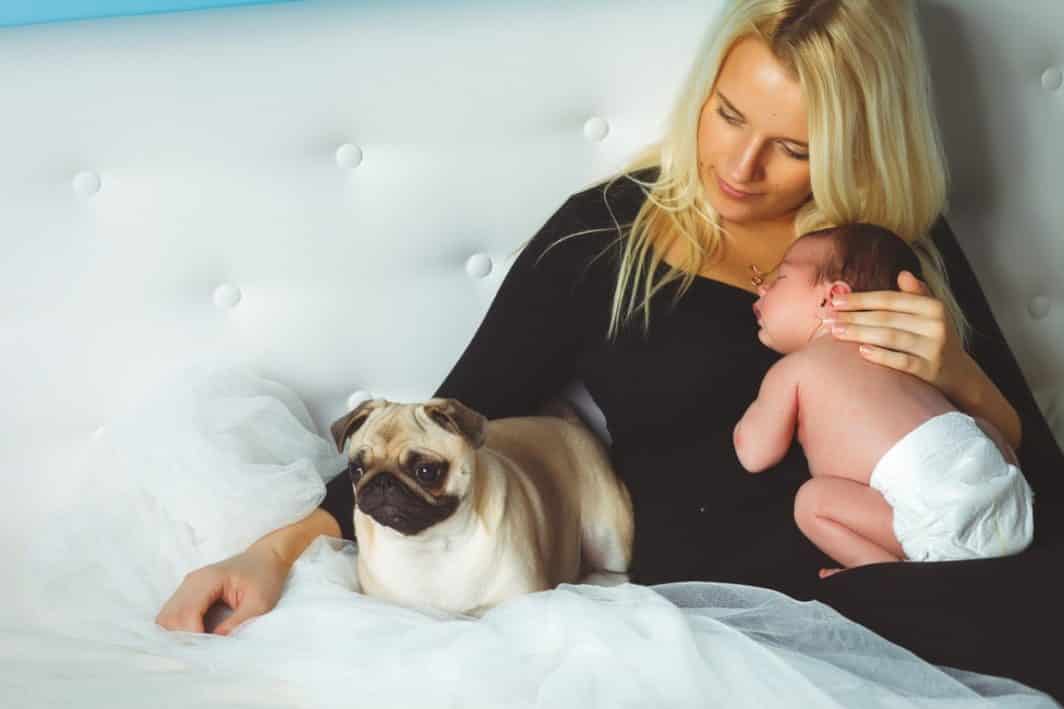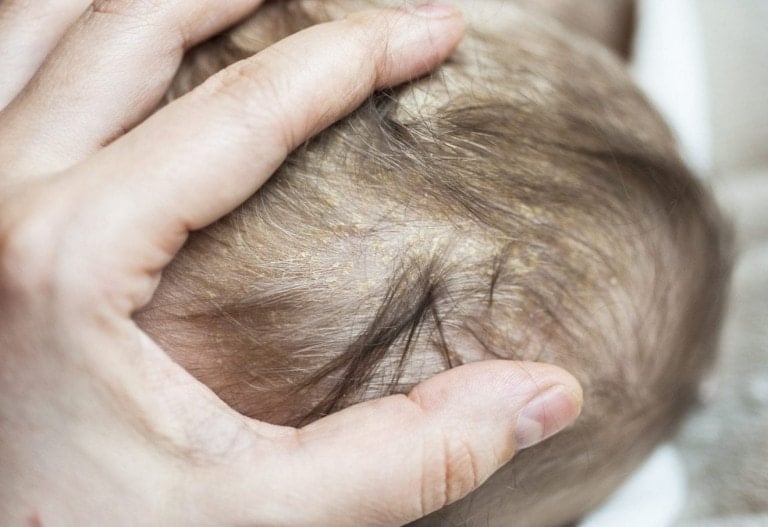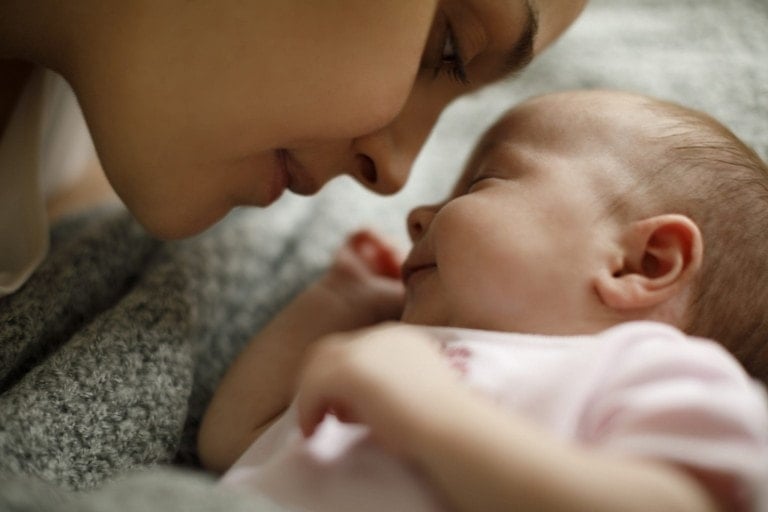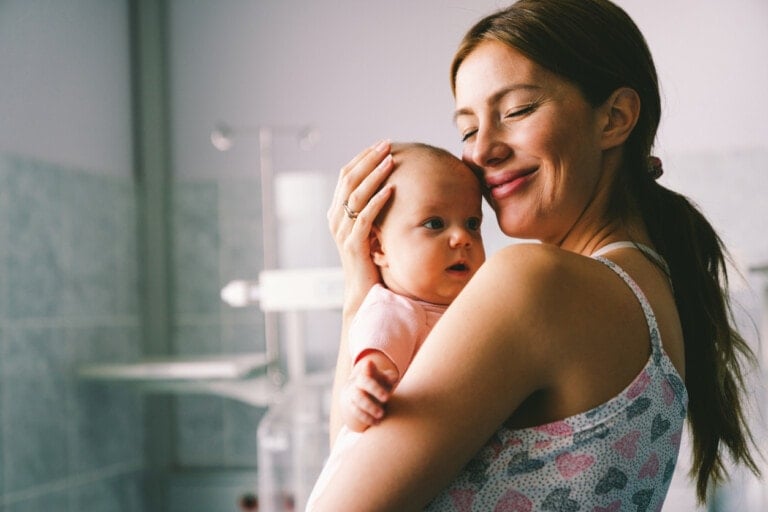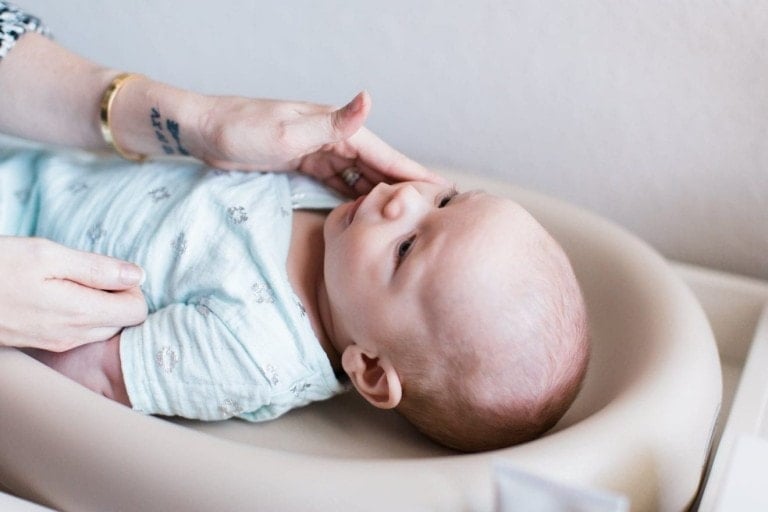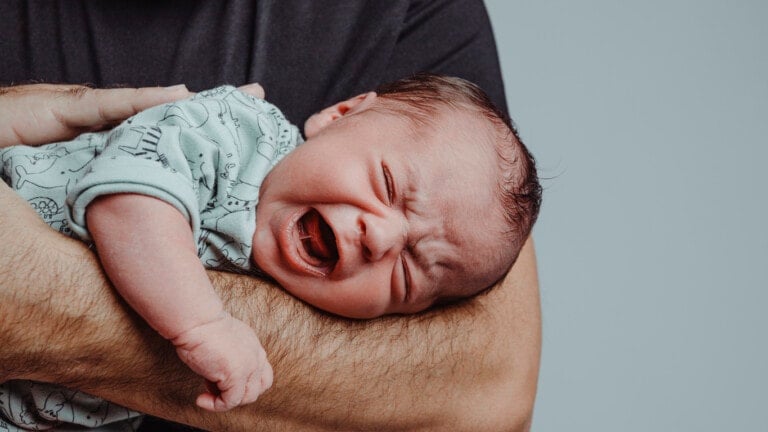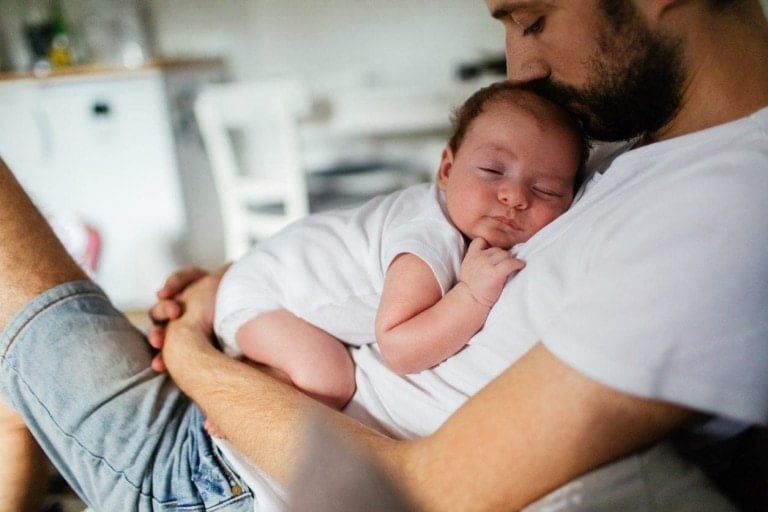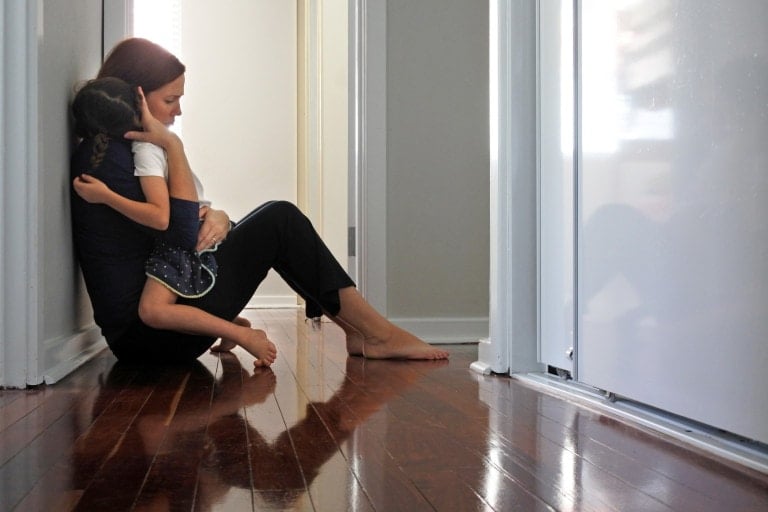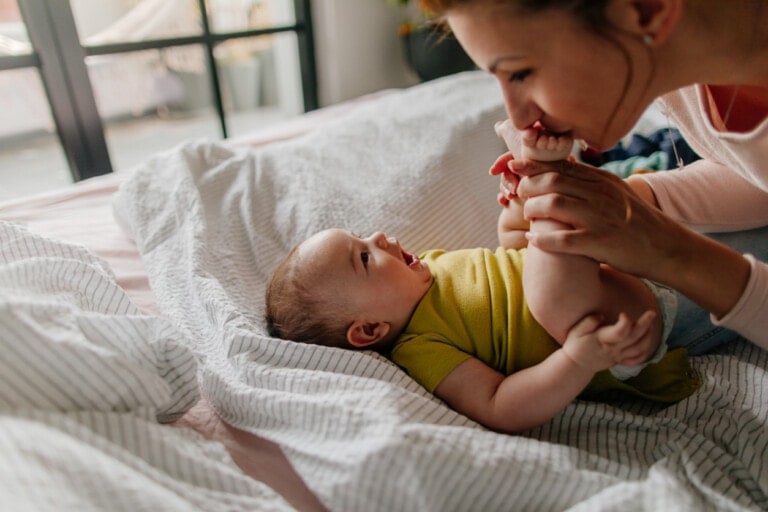Before you have babies, your pets are your babies (furbabies, that is). But your whole world will change when you find out you’re expecting. And so will your pet’s world. Bringing a new pack member/leader into the home can be difficult for your pet.1 This is why it’s essential to start thinking about how you will introduce your pets to your baby.
Introducing Pets to a New Baby
1. Set Boundaries
First things first: prohibit your family’s pets from entering the nursery alone. You don’t want your dog or cat to cross this boundary without your permission. Consider setting up a physical barrier, such as a baby gate, to keep them out. When you feel comfortable, allow your pet to examine the nursery for a limited time (under your supervision). Doing this several times before bringing your baby home can help your pet understand they must respect this space.2
Also, to prevent bad habits, don’t let your pet play with your baby’s toys, lie in the baby’s crib, or lie in the stroller, bassinet, etc. This allows you to keep setting boundaries, which can help you avoid difficulties in the future. Pets can become possessive, which could be dangerous and hard to correct later on when your baby is home.4
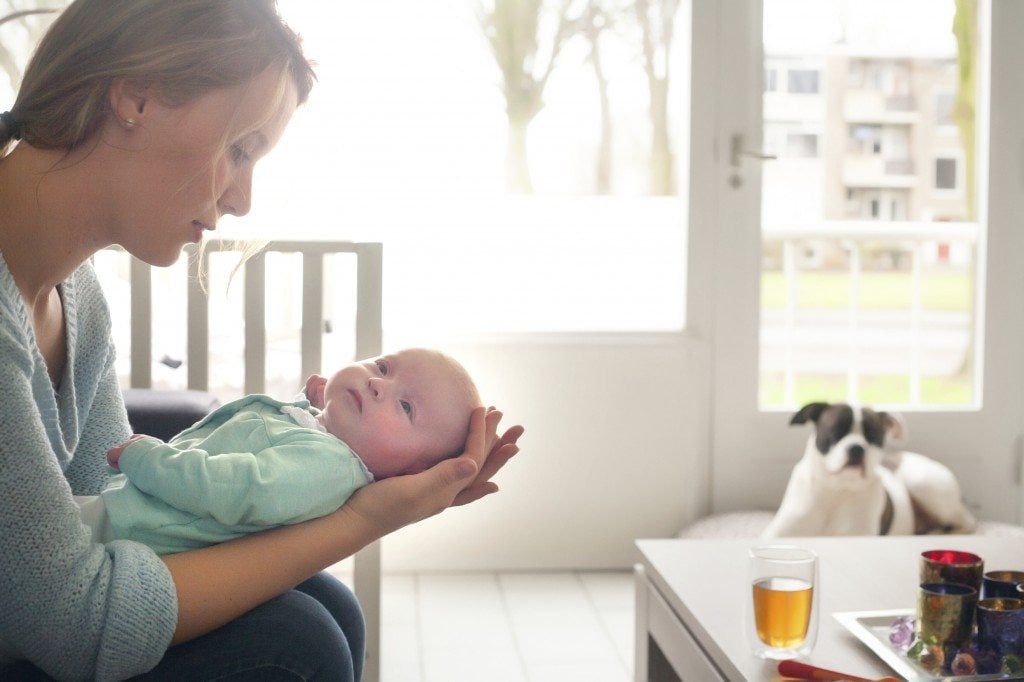
2. Introduce Your Baby’s Scent
Once your baby is born, give an item with your baby’s scent to someone who will take care of your pets while you’re away. Maybe your husband/partner will stop in and check on your pets. Give him a used burp cloth, the hospital blanket you swaddled your baby in, or a onesie your baby was wearing. Cesar Millan, “The Dog Whisperer,” says you must have the dog “sniff from a distance, while you are holding the item. By doing so, you are communicating to your dog that the item is yours and then giving permission for the dog to sniff. ‘This new item belongs to me, and you will need to follow my rules when around it.’ This helps start the process of creating respect for the baby.”2
3. For Dogs, Wear Them Out Before You Get Home
If you’ve had your baby in the hospital, you’ve been gone for a few days, and your pets will be excited to see you when you get home! I recommend having a neighbor, family member, or friend take your dog(s) to the local dog park or on a run to wear them out before you get home with the baby. They will still be thrilled to see you, but at least some of their energy will be drained, so they will be quicker to calm down.5
4. Greet Your Pets First
When you finally arrive home from the hospital, your cat or dog should be allowed to greet you (mom) without the baby present. Have someone else (your partner) hold your baby while you welcome your pets. Only after the pet has calmed down should your partner present the baby. Keeping the dog and baby separate for a few hours may be a good idea. This way, the dog can get used to the baby in the house without getting too close.3
If you have a cat, an introduction should also not be rushed. Hold the cat near the baby (again, just close enough so they can smell the little one), be calm, and talk soothingly to your cat.
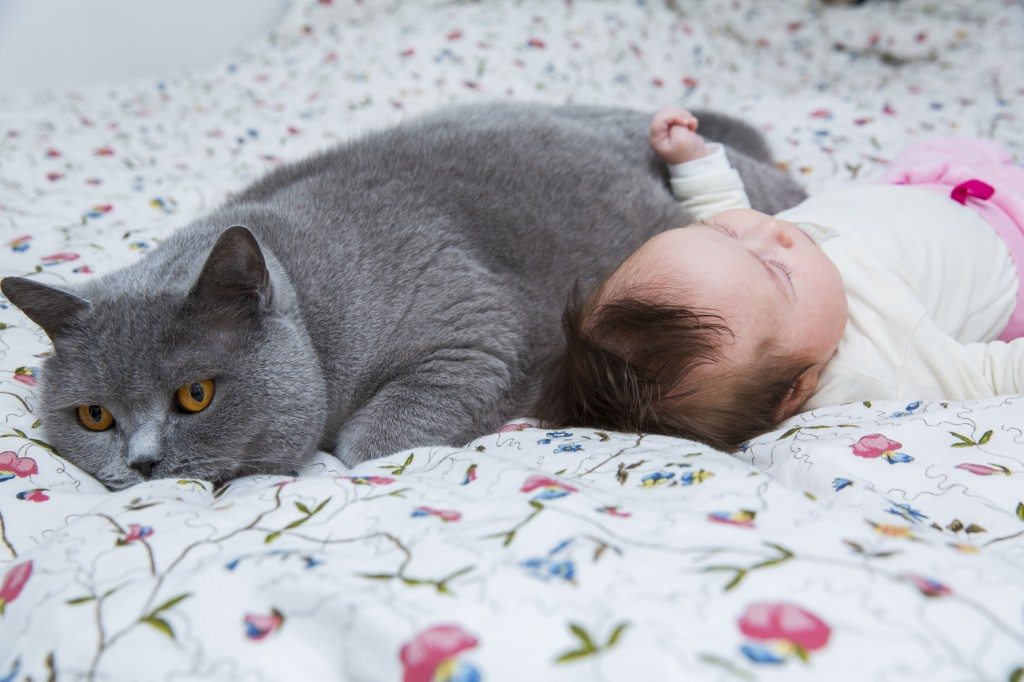
5. Keep Calm
As you wait for your pets to calm down when you arrive home, you or your partner holding the baby must be calm. The cat or dog should be allowed to sniff the baby at a distance. Eventually, let your cat or dog get closer and closer to the baby. Doing this teaches your pet to respect the baby as another pack member/leader.3
Also, never yell at your dog or cat if they get too close for comfort. You can be firm but don’t raise your voice with your pets when dealing with your baby. It will only frighten your pet and creates a negative association with the baby.6 This is why remaining calm is essential. Make sure you only reward calm and positive behavior.
6. Praise Your Pet
If your dog or cat behaves nicely around the new baby, point this good behavior out. Offer plenty of praise through words and treats. Positive reinforcement will encourage good behavior.5
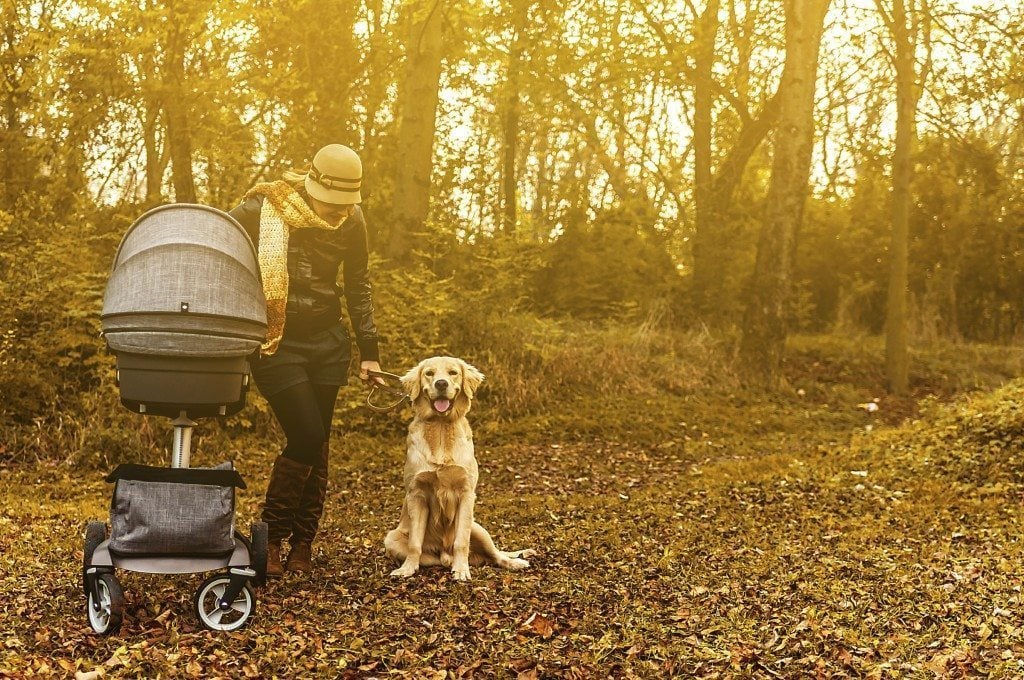
You want your dog or cat to know they’re still a beloved family member. Allow your pet to sit by you as you nurse or play with them while you cuddle with your baby. Try to spend at least five minutes of solo time daily with your affection-hungry pet.7 A happy cat or dog is usually a well-behaved one. When a pet starts acting up, it’s because they’re not getting the attention they used to get.4
Also, stick with your pet’s regular routines as much as possible. They need that structure, especially when your home has changed so much.2
8. Forget the Size and Breed
Don’t assume your pet will (or will not) pose a problem because they are small, and don’t judge your pet by their breed. Many different breeds have bitten, scratched, and, unfortunately, even killed babies. Back in 2000, a cute little pomeranian killed a baby in California.3 I have a Pomeranian and would never think Lola would do such a thing. But you never know, so always remain cautious and be in control of your pets.
9. Prioritize Safety
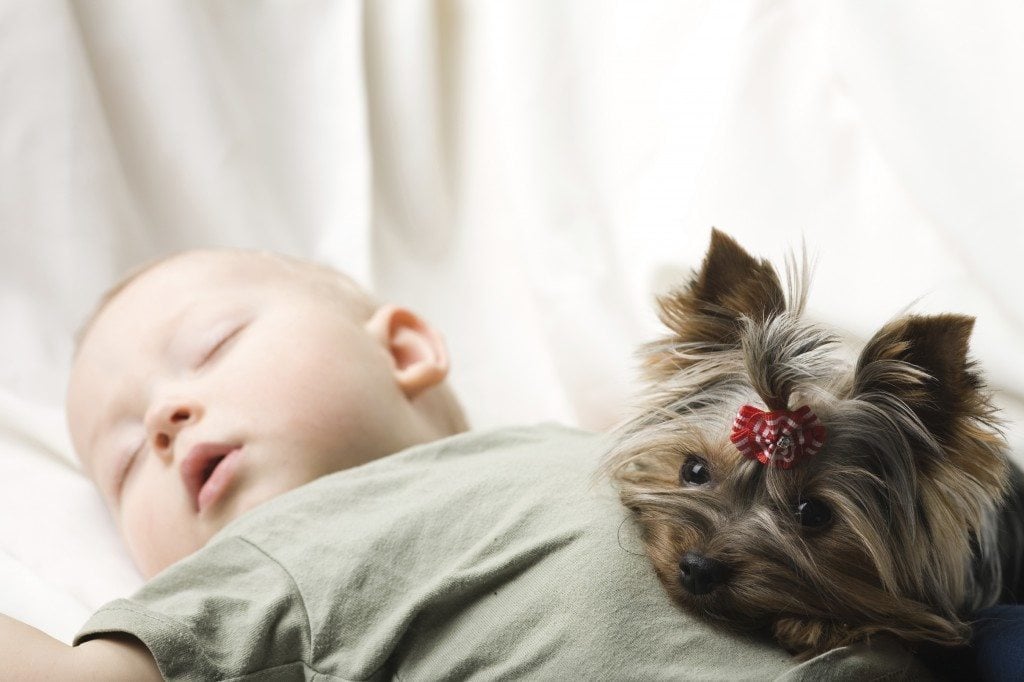
If, after working with a professional and on your own, you are still not 100% confident about your baby’s safety with your pet, finding your pet another home to protect the well-being of your child and pet is a step you may have to take. It’s a painful step, but your child’s safety should always come first.
10. Always Supervise
Never leave your baby unattended within your pet’s reach, no matter what breed your pet is or how long they have been in the family. Infant behavior (squealing, a jerky movement, etc.) could unexpectedly irritate your cat or dog and cause them to have a quick, adverse reaction.3 Even if your pet is adjusting well and shows no signs of aggression, supervision can help you prevent accidents from occurring.
Pets are important in many families, so I hope these tips help when you bring home your baby. Have you done other things that improved your baby’s introduction to your pets? We want to know!













